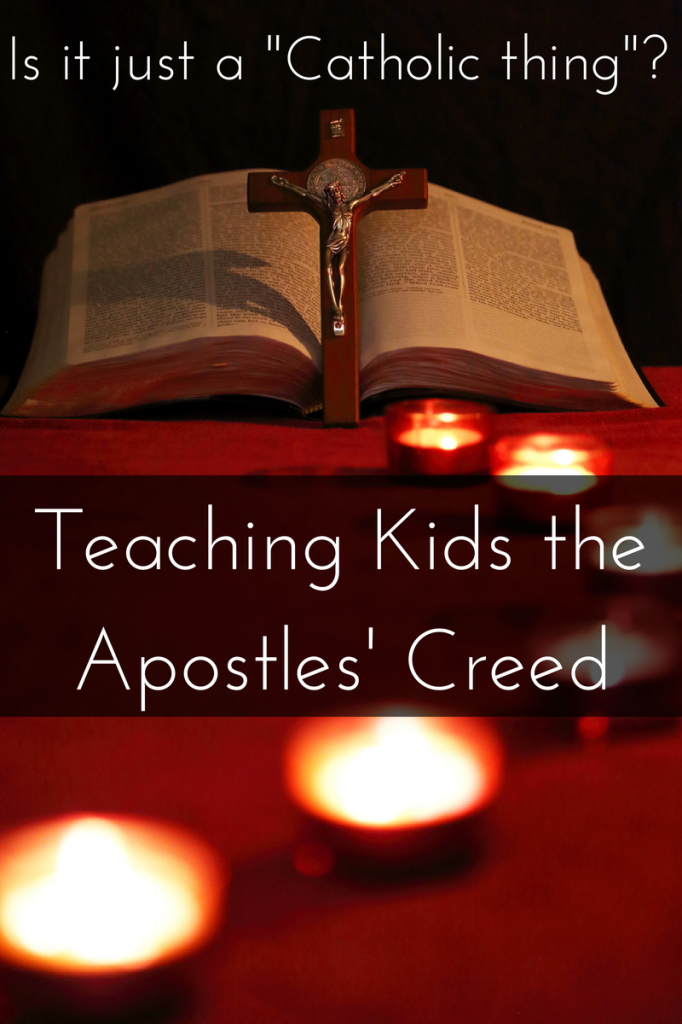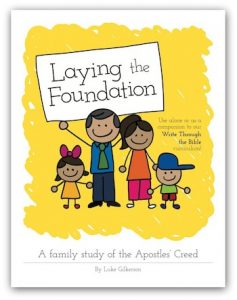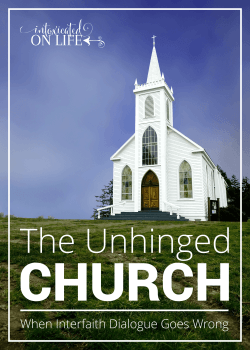This coming school year I aim to have my kids memorize and study the Apostles’ Creed. Recently I was asked by one of our readers, “Isn’t that a Catholic thing?”
For starters, it is important to note that the person asking the question wasn’t asking with a critical tone—as if being associated with the Roman Catholic Church was a crime. It is was a mere question of fact: My family is not part of the Catholic Church, so why would I have them memorize something with Catholic associations?
1. The Apostles’ Creed is part of our common Christian heritage.
It is true that the Apostles’ Creed is readily used in the Roman Catholic Church. In fact, the Apostles’ Creed as we know it—with a few modifications and additions over the centuries—is primarily a product of the Church in Rome. The predecessor of the Apostles’ Creed is the “Old Roman Creed,” which was written at the end of the second or the beginning of the third century. This creed was itself a formalized version of the “Rule of Faith,” an oral tradition within the church that summarized of the essentials of orthodox faith—and was believed to have come from the Apostles themselves.
While the Apostles’ Creed was not written by a formal church council, we should remember that at the first ecumenical council in 325, when they were penning the Nicene Creed, the authors did not start from scratch. They used the Old Roman Creed as its foundation. This shows us just how much the Apostles’ Creed enjoyed widespread acceptance in the church throughout the world.
Churches of all stripes look back to the leaders of these early centuries of the church as their spiritual fathers. The authors and promoters of the Apostles’ Creed helped to keep the church orthodox at a time when church was under intense persecution from without and heresy from within.
2. Many churches from Protestant traditions use the Apostles’ Creed.
The original Protestant Reformers did not simply reject any and all church traditions. They quoted the church fathers, the early councils, and the early creeds regularly—and this included the Apostles’ Creed.
When Reformer Martin Luther was compiling his Small Catechism for Christian families, he included what he considered three essentials: the Ten Commandments, the Lord’s Prayer, and the Apostles’ Creed. The Anglican Book of Common Prayer and the Heidelberg Catechism contain the same three essentials. Both Calvin and Zwingli included it among their doctrinal norms. It is also cited in full at the end of the oldest editions of the 1647 Westminster Shorter Catechism.
Luther said of the Apostles’ Creed, “Christian truth could not possibly be put into a shorter and clearer statement.” John Calvin set the Creed to music so it could be used for public worship. John Wesley called the Apostles’ Creed a “beautiful summary” of the essential truths of our faith, and when writing the evening prayer service for Methodists, he included the recitation of the Creed.
3. The Apostles’ Creed is wholeheartedly Biblical.
The Creed is filled with simple Scriptural language, each line presenting essentials of the Christian faith in complete agreement with the Apostolic teachings of the New Testament. The reason why so many Protestant Christians still confess the Apostles’ Creed is because it is biblical.
It is important to remember that the predecessor to the Apostles’ Creed, the Old Roman Creed, was written at the time when the New Testament didn’t even exist. Yes, all the New Testament writings were written and being circulated in the church, but the formal canon of 27 inspired New Testament books wasn’t formulated until 367 (in a pastoral letter by Bishop Athanasius of Alexandria). At this point the Old Roman Creed has been in use for more than 150 years.
 Teach Your Kids the Apostles’ Creed: A New Family Bible Study
Teach Your Kids the Apostles’ Creed: A New Family Bible Study
Check out our family Bible study: Laying the Foundation: A Family Study of the Apostles’ Creed. It includes 30 devotional lessons to teach your children the Creed, line by line, thought by thought.
Also, as a part of our Write Through the Bible series, we have both manuscript and cursive versions of the Apostles’ Creed handwriting workbooks.
You can get all of these resources in our Apostles’ Creed Family Bundle.












[…] Teaching Kids the Apostles’ Creed: Is it just a Catholic thing? […]